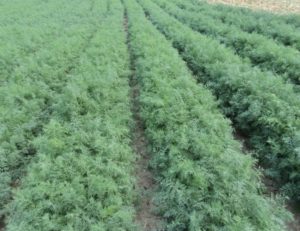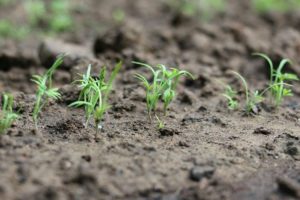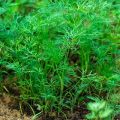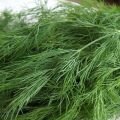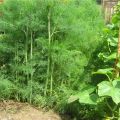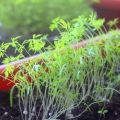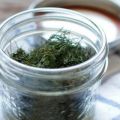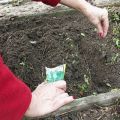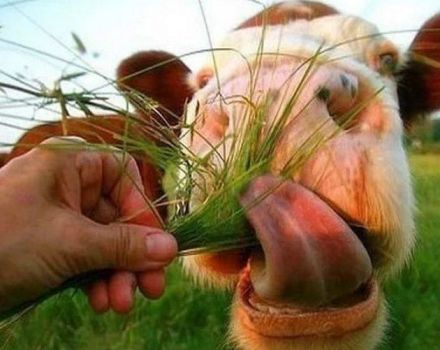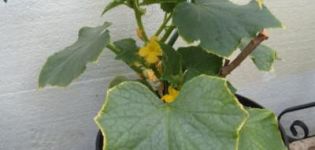Useful and medicinal properties of dill seeds, possible contraindications for the health of the human body
Many vegetable growers are engaged in the cultivation of dill and other herbs on their plots. Dill differs from other plants in its unpretentious care and versatility of its use. It is used not only in creating delicious vegetable dishes, but also in medicine. However, before using this herb for treatment, you should familiarize yourself with the beneficial properties of dill.
Content
- 1 Chemical composition, nutritional and energy value of dill
- 2 The benefits and harms of dill for the human body
- 3 The use of the medicinal properties of dill
- 4 The chemical composition of dill seeds
- 5 The healing properties of dill seeds
- 6 What are dill seeds taken from?
- 7 How to brew dill seeds?
- 8 Contraindications
- 9 Conclusion
Chemical composition, nutritional and energy value of dill
Before planting dill in your summer cottage, it is recommended that you familiarize yourself with its chemical composition in more detail. The plant contains many trace elements, among which the most are vitamins. Greens are rich in vitamin C, which is contained in each bush in the amount of 150 mg. Ripe twigs also contain about 5 mg of vitamin E and beta-blockers. In the composition of greens there are other vitamins, however, their amount does not exceed 1–2 mg.
The plant contains many macro and microelements. Sprigs of greenery are rich in calcium and potassium. They also contain a lot of sodium with magnesium and phosphorus. In addition, during the ripening process, they accumulate a lot of copper, zinc and iron. Due to its rich composition, dill is often used in folk medicine for the treatment of chronic diseases.
The advantages of dill bushes include their low calorie content, which is 50 Kcal per 100 grams of plant. Due to its low calorie content, many nutritionists recommend adding dill to their daily diet to help you lose weight.
The benefits and harms of dill for the human body
Fragrant dill has many useful properties that every vegetable grower should familiarize with. Regular consumption of greens:
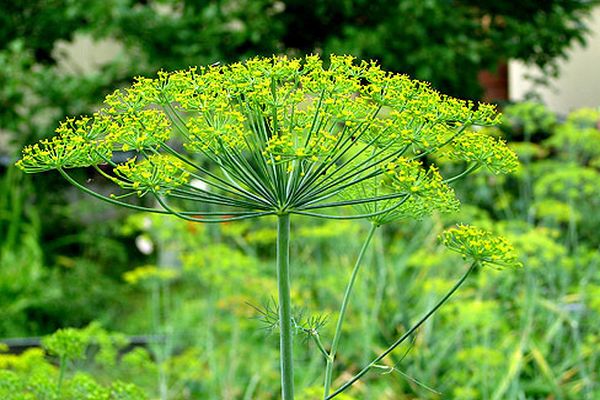
- Normalizes the functioning of the organs responsible for the functioning of the gastrointestinal tract. The plant cleans the intestines, stops diarrhea, and helps with bloating.
- Strengthens the cardiovascular system. Dill branches reduce high blood pressure and improve blood circulation. At low blood pressure, greens are harmful and therefore cannot be eaten by hypotonic patients.
- It has a positive effect on the nervous system. Dill tinctures are often used to treat sleep problems and increased nervousness.
- Eliminates the symptoms of colds. Medicines made from herbs accelerate the excretion of phlegm in bronchitis.
All of the above properties are among the most common beneficial properties of the plant. In addition to them, there are separate benefits for men, women and children.
For men
This green is considered a good aphrodisiac and therefore is often used by guys to improve sex drive. Dill infusion is useful for problems with potency and weak erection. It improves blood circulation and blood flow to the genital organ, thereby increasing erection.
For women
The rich composition of dill makes it useful for the female body. Regular consumption of greens improves the well-being during menstruation and normalizes the menstrual cycle. Some doctors advise pregnant girls to eat more dill. This will help to quickly eliminate swelling, stabilize water balance and improve intestinal permeability.
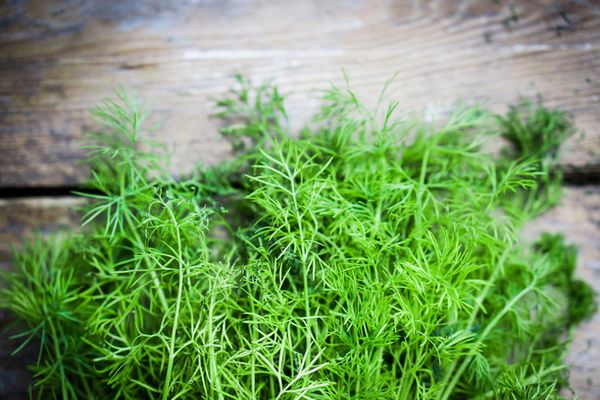
For kids
Experts advise using dill broths to cure babies from colic and increase their appetite. Also, medicinal compresses are made from the plant, which help get rid of the symptoms of a cold.
Children under one year old should not be treated with dill, as this can adversely affect their health.
The use of the medicinal properties of dill
The healing properties of dill make it possible to actively use it in medicine, cooking and dietetics. It is recommended that you familiarize yourself with the peculiarities of using this greenery in each of the listed industries in advance.
In folk medicine
Dill is often used in folk medicine to treat various diseases and restore health. For medicinal purposes, they use the rhizomes of bushes, from which medicinal infusions are prepared. They are used for:
- treating symptoms of hypertension;
- improving lactation in expectant mothers;
- arrhythmia treatment;
- elimination of inflammatory processes in the lymph nodes.
Also in folk medicine, dill branches are used. Most often they are used to stop these types of bleeding:
- dental;
- nasal;
- pulmonary;
- intestinal;
- menstrual.
In cooking
Most often, dill bushes are grown so that they can then be used in cooking. Fresh dill is added to vegetable salads and meat dishes made from fish or meat. It is also used for the preparation of preserves and sauces. Dried twigs are added to squash caviar, borscht and canned vegetables. Some housewives use herbs to make their own homemade vinegar or oil.
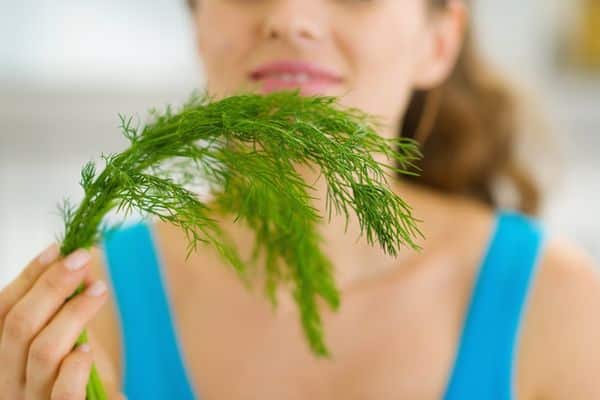
When losing weight
Dill is used in dietetics, as it helps to get rid of extra pounds. The plant has several beneficial properties that are important when losing weight:
- removal of excess fluid from the body;
- breakdown of fats;
- activation of the digestive tract;
- acceleration of food digestion.
When losing weight, it is recommended to often add dill twigs to dishes and prepare special decoctions from seeds.
The chemical composition of dill seeds
The plant is very rich in useful trace elements, vitamins and other active substances. Its various parts contain more than a hundred useful elements. The rhizome, green twigs and seed contain a lot of essential oil, which gives the plant a special aroma. The maximum amount of essential oils is found in seeds - about 4–5%.
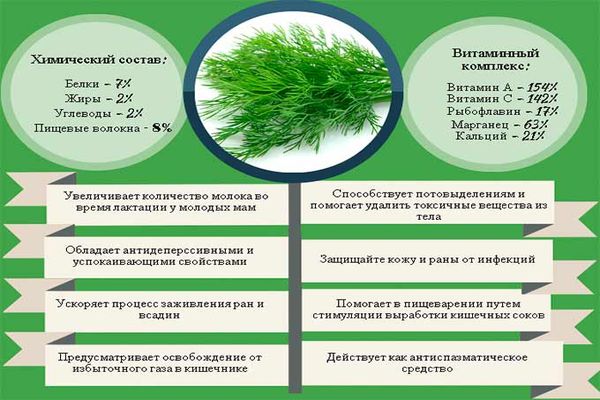
Dill seeds are distinguished by medicinal properties, which appeared due to the components from the composition. For example, they contain an element such as apiol. This substance is referred to as antispasmodics, which help to cope with spastic pain.
Also, the seeds contain the following trace elements:
- Carvon. Most of all, greens contain carvone, which belongs to natural components. It is he who gives the dill seeds a pronounced aroma.
- Limonene.This component is referred to as terpene hydrocarbons, which are often used in cosmetology. The substance is used to create dishwashing detergents, cosmetics and even medicines.
- Fellandren. A trace element refers to monoterpenes, which are extracted from essential oils for the creation of cosmetic products and medicines.
The healing properties of dill seeds
Some people use dill seed for medicinal purposes, as they contain useful trace elements. Before using such seeds, it is better to familiarize yourself with their medicinal properties in advance.
The benefits and harms of dill seeds
Green seeds are used to activate the central nervous system to get rid of the feeling of fatigue and stress. Also, medications made from dill fruits can cure insomnia and get rid of depression. Some doctors recommend using decoctions of seeds to eliminate gastritis symptoms and increase appetite.
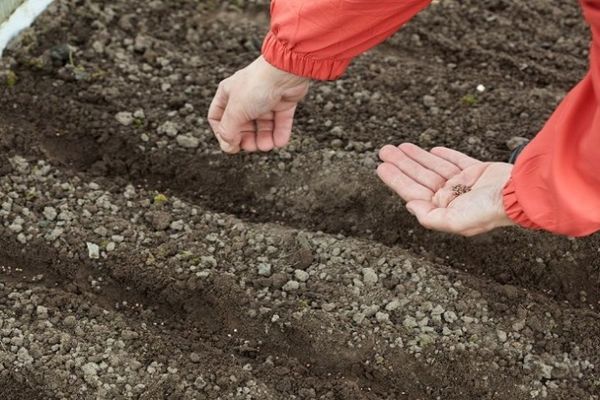
However, despite all the benefits of dill, it must be used very carefully in the treatment of diseases, observing the optimal dose. Misuse of herbal medicines leads to a sharp drop in blood pressure, which is very dangerous for people with hypotension. Because of this, some of them develop weakness and fainting.
What are dill seeds taken from?
Medicines and decoctions from dill seeds are often used to treat:
- angina pectoris;
- dizziness;
- neuroses;
- high pressure;
- depression;
- cystitis;
- gastritis;
- atherosclerosis.
How to brew dill seeds?
Dill seeds are used for the preparation of medicines in the form of infusions and decoctions. To brew the grains, you need to add 80 grams of grains to 450 milliliters of water. Then the container with the liquid is placed on the gas stove, and the broth is brought to a boil. Boiled water with seeds should be infused for at least an hour, after which the mixture is filtered.
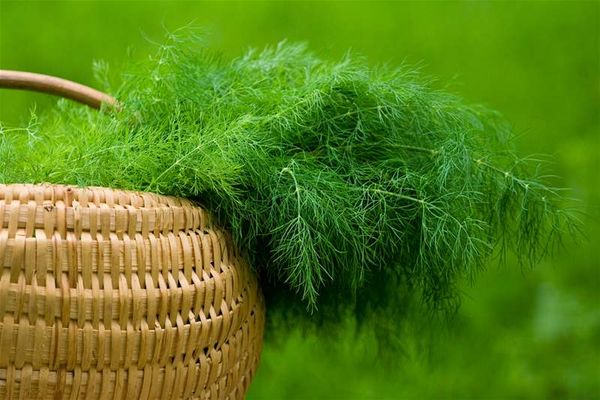
The prepared product can be used to treat hypertension, cystitis and constipation.
Contraindications
Before using dill, be sure to familiarize yourself with its contraindications. People with a high sensitivity to essential oils will have to give up the use of dill in any form. Also, you should not eat a lot of greens for allergy sufferers, as this may exacerbate allergy symptoms.
In addition, doctors do not advise hypotensive patients to eat dill twigs to prevent complications of the disease.
Conclusion
Dill is cultivated by many gardeners who like to plant vegetables in their gardens. Before using the grown herbs in cooking or for medicinal purposes, you need to familiarize yourself with its composition and application.
